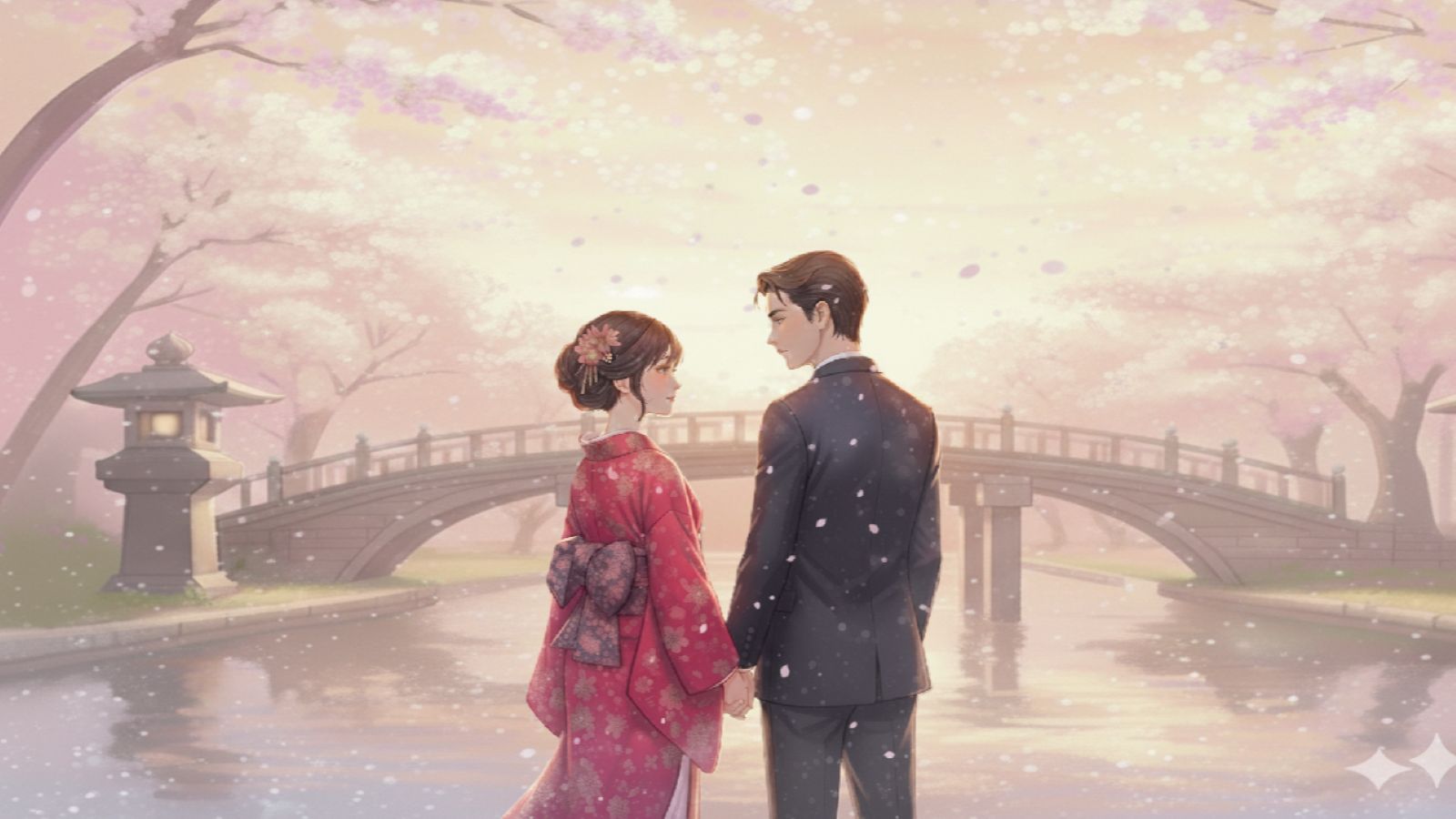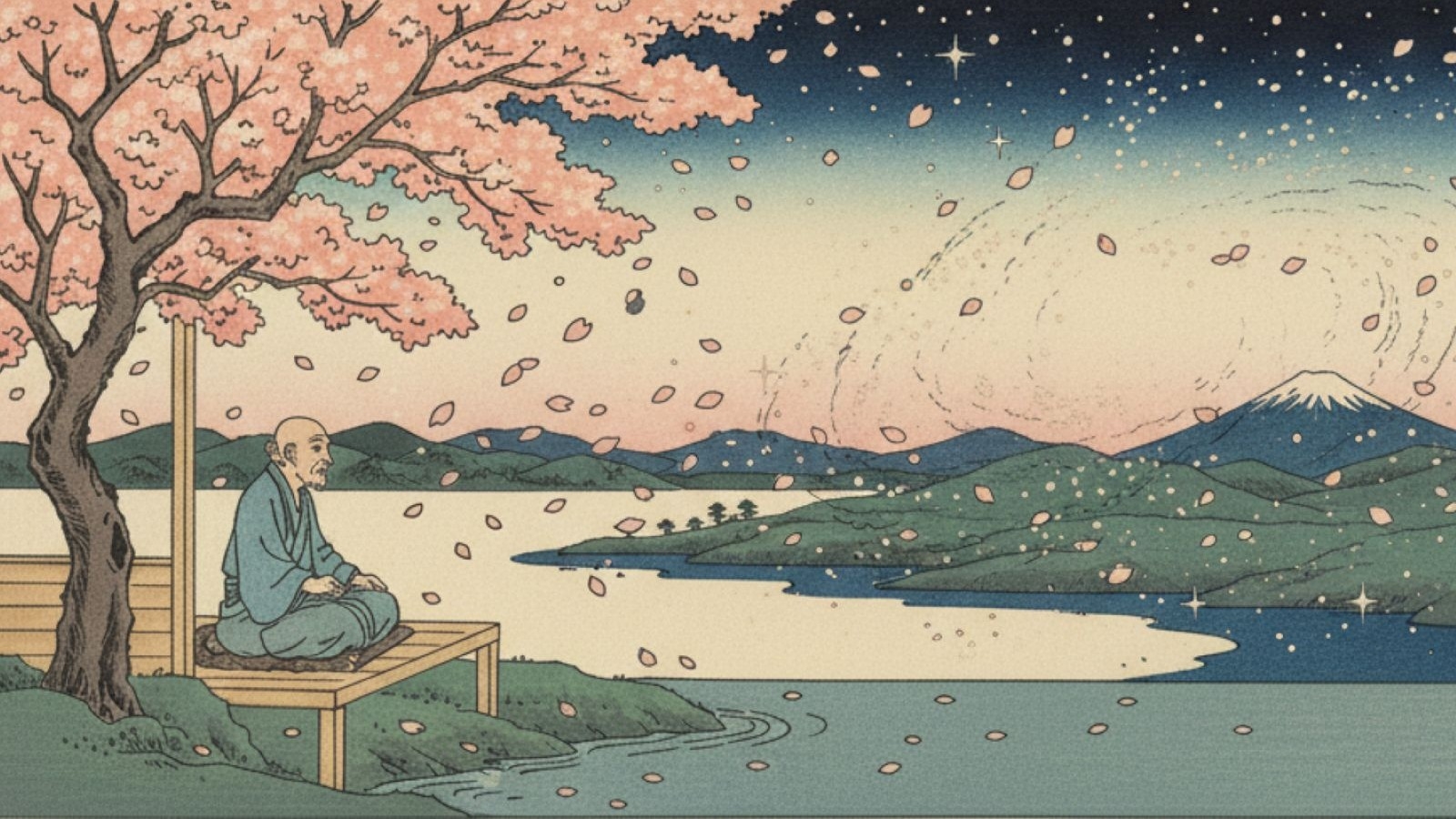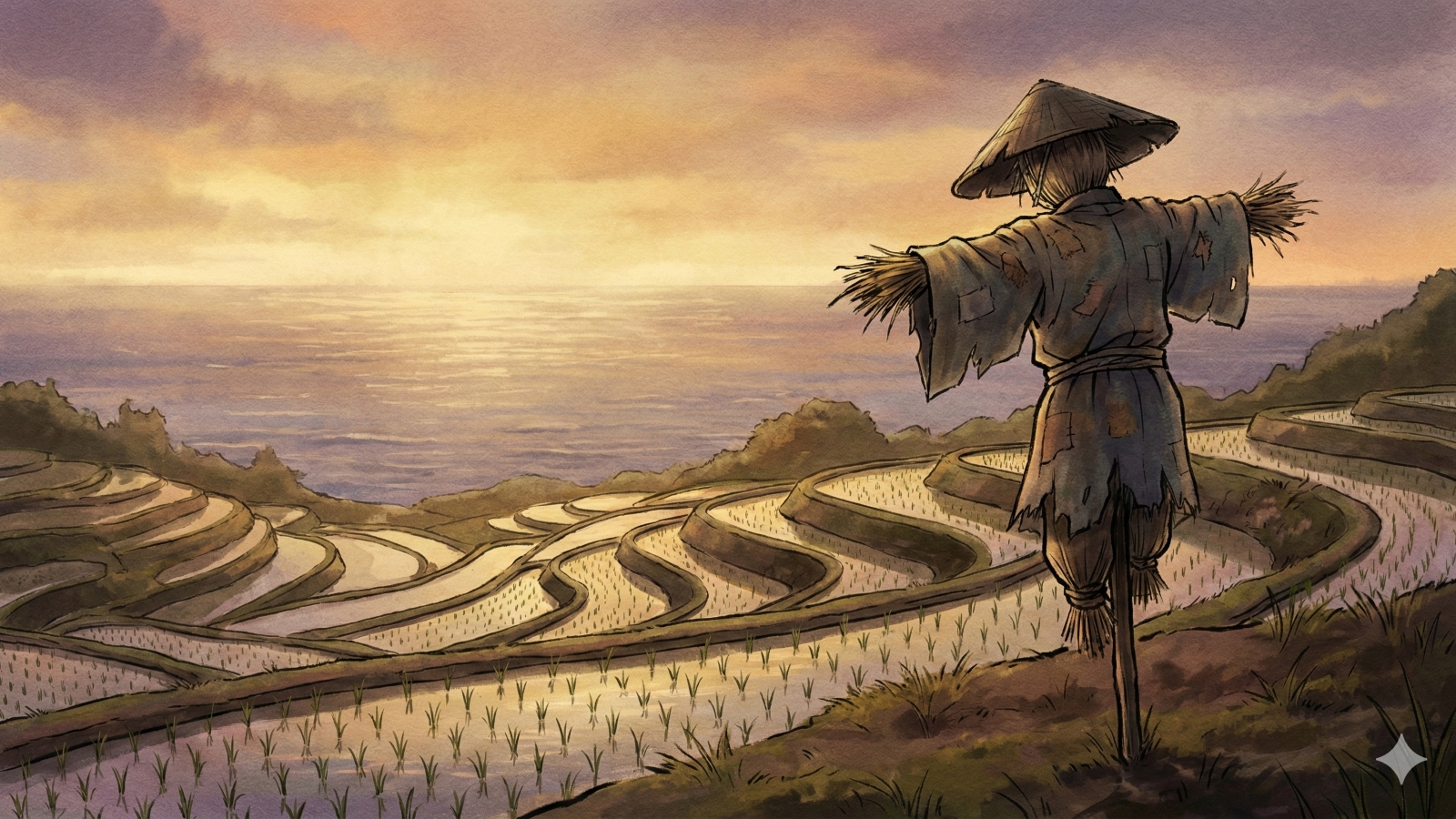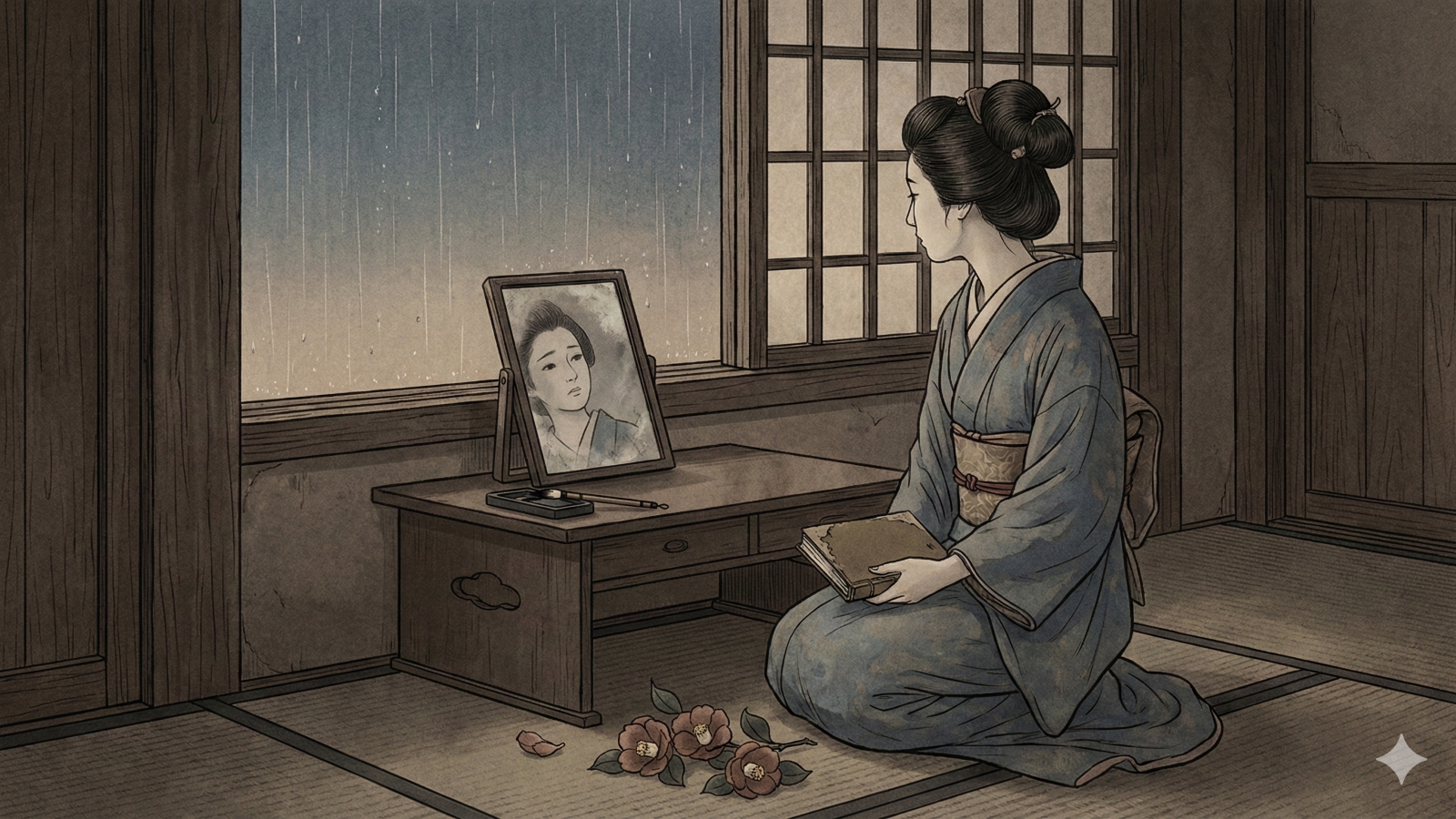Flames of the Soul, Lamps of Silence - Forms of Love from Literary Giants
When faced with a finite life, what do people seek in love? Do they burn with a passion that courts ruin? Or do they find solace in a quiet empathy that transcends words? The words left behind by Natsume, Yosano, Hori Tatsuo, and others capture the irresistible impulse of "love," which moves people beyond reason and fate.

「一つの明りが私達を近づけ合っている。」
“A single light is bringing us closer together.”
— Hori Tatsuo, The Wind Has Risen
【Commentary】
Words can sometimes divide hearts, while silence can sometimes unite them. “I” and Setsuko live in a sanatorium. He writes stories, and she lies quietly in bed. Between them flows a tranquil time of mutual understanding that requires no words. The light of a single lamp illuminating the night room is depicted as a symbol that intimately connects them, both physically and spiritually. This short sentence masterfully expresses the quiet, deep form of love between two lovers who are fulfilled simply by being together, even amid the harsh reality of illness. It reveals the essence of love—that sharing a single space and time is happiness in itself. The scene, lit in the silence, allows the reader to feel the serenity of love and the peace it brings.
「私達のいまの生活、ずっとあとになって思い出したらどんなに美しいだろう」
“Our life now, how beautiful it will seem when we look back on it much later.”
— Hori Tatsuo, The Wind Has Risen [Setsuko]
【Commentary】
Times of suffering can often shine like jewels when looked back upon. This is a scene where Setsuko, living in the sanatorium, casually speaks to “I.” She views their current days of living with illness from the perspective of the future. Her words—that even this life, which should be painful and anxious, will surely become a beautiful memory from the distant future—convey a quiet strength, as if she has achieved a higher understanding. This line teaches us the preciousness of each and every moment spent with a loved one. It shows the power of love to beautify time and give it eternal value, even if it is filled with hardship. These words, which affirm the present even while sensing the end, resonate deeply and poignantly in the reader’s heart.
「二人の人間がその余りにも短い一生の間をどれだけお互に幸福にさせ合えるか?」
“How much happiness can two people bring each other in the course of their all-too-brief lives?”
— Hori Tatsuo, The Wind Has Risen
【Commentary】
In the limited time we have, what can we share with the ones we love? Amidst a life in a sanatorium where the shadow of death looms, “I” re-examines his relationship with his fiancée, Setsuko, and deeply contemplates what a “true engagement” is. His thoughts lead not to the formality of marriage, but to a more fundamental question: how can two people living a finite life together make each other happy? This sentence poses a universal theme that re-examines the ultimate purpose of love and marriage. It is precisely because the situation hints at a coming separation that the preciousness of their time together, and the urgent question of what they should do with it, arises. It seems to quietly ask each of us about the meaning of living with someone we love.
「思ひ出したとて今更に何うなる物ぞ、忘れて仕舞へ諦めて仕舞へ」
“What good will it do to remember now? Forget her, just give her up.”
— Higuchi Ichiyo, Troubled Waters, Chapter 7 [Genshichi]
【Commentary】
“I want to forget, but I can’t”—are you familiar with the pain of such a love? This work tells the story of Oriki, a prostitute at the “Kiku no I” tavern, and the helpless men captivated by her. Genshichi, a man with a wife and child, is unable to sever his feelings for Oriki and descends into alcoholism, destroying his family. The quoted passage is the cry from Genshichi’s heart as he remembers his happy past with Oriki and desperately struggles to forget. It painfully conveys the agony of knowing what he should do logically, but being unable to make his emotions follow. The helplessness of a person caught in the inescapable mire of love, sinking deeper the more they struggle, is condensed here.
「誰れも憂き世に一人と思ふて下さるな」
“Please don’t think you are alone in this sad world.”
— Higuchi Ichiyo, The Thirteenth Night [Oseki]
【Commentary】
If you were to reunite with a cherished love from your past in an unexpected place, what words would you offer? Oseki, on her way to her parents’ home after being unable to bear the treatment from her aristocratic husband, realizes that the rickshaw puller she happens to be riding with is Rokunosuke, a childhood friend for whom she once had tender feelings. They learn of each other’s changed circumstances and exchange words. This line is what Oseki says to comfort Rokunosuke after hearing his story of despair. In these words—“don’t think you are living through this harsh world all alone”—her own situation is also reflected. Sympathy for her unfulfilled love and a warmth that has not changed over time are condensed into this short line. The empathy born from this brief reunion feels like the moonlight that faintly illuminates the two of them.
「代助は
“Daisuke placed those who spoke of unchanging love in this day and age in the first rank of hypocrites.”
— Natsume Soseki, And Then
【Commentary】
Are vows of eternal love truth, or are they mere hypocrisy? This sentence reveals the creed of the protagonist, Daisuke, a man of leisure, as he coldly analyzes relationships between men and women in the city. He asserts that in a modern society full of stimulation, people’s hearts are fickle, and something like unchanging love does not exist; those who speak of it are hypocrites. Ironically, however, he himself comes to suffer from an unshakeable love for his friend’s wife, Michiyo, a love that cannot be rationalized away. These words present a key theme of the story: the anguish of a modern man who cannot fully believe in love, foreshadowing the eventual defeat of his reason and his break with old values.
「自分は今日、自ら進んで、自分の運命の半分を破壊したのも同じ事だ」
“Today, I have, of my own volition, done the same as destroying half of my own destiny.”
— Natsume Soseki, And Then, Chapter 14, Section 6
【Commentary】
To gain something is to lose something. The path toward the light begins with a farewell to the shadows. This sentence is from the protagonist Daisuke’s introspection after he has resolved to reject the marriage arranged by his family and choose the woman he loves, Michiyo. He is aware that this decision is an irreversible act that will fundamentally overturn the peaceful life he has led and his relationship with his family. To fulfill one love, he is prepared to destroy “half of his destiny”—a stable future. This encapsulates the weight of choosing love and the pain of parting with the social relationships that come with it. This self-destructive awareness is what drives him toward an even more intense passion.
「道を云はず後を思はず名を問はずここに恋ひ恋ふ君と我と見る」
“Speaking not of the path, thinking not of the future, asking not of names—here we gaze, you and I, lost in love.”
— Yosano Akiko, Tangled Hair
【Commentary】
Isn’t love something that sometimes leaps beyond logic and the future? This poem vividly depicts two people casting aside all constraints such as social standing, the past, and the future, to burn in the moment of love that exists “right here, right now.” The three negations—“Speaking not of the path,” “thinking not of the future,” “asking not of names”—seem to have the effect of emphasizing the absolute nature of their passion. The essence of a pure, blazing love exists outside the framework of common sense and morality. This verse, which seems to capture the very impulse of love, sings loudly of a power that cannot be suppressed by reason. In the space shared by just the two of them, cut off from the surrounding world, a brilliance akin to eternity seems to dwell in the single moment they gaze at each other.
「私達は会つても別に話はないのだけれども、一日会はないでゐると、堪へられないほどの寂しさが感じられた。」
“We had nothing in particular to say when we met, but if we didn’t see each other for a day, we felt an unbearable loneliness.”
— Yoshii Isamu, Drunken Records, “A Lonely Love”
【Commentary】
There are loves that are fulfilled through conversation, and there are loves that are fulfilled simply by being near. The relationship between “I,” a sculptor, and his unfortunate lover was named “a lonely love.” They did not speak much when they met, and sometimes even shed tears, yet they still strongly sought each other out. This sentence depicts a deep, quiet form of love in which the other’s mere presence is more essential than communication through words and conversation. The unbearable loneliness brought by time apart seems to prove the strength of their bond. This earnest, though unglamorous, way of loving quietly asks us what the true essence of love is.
「いのち短し、
“Life is short, fall in love, maiden, before the crimson of your lips fades, before the passion in your blood runs cold.”
— Yoshii Isamu, The Gondola Song
【Commentary】
If there were no tomorrow, what would you do? This passage is the famously well-known opening of “The Gondola Song,” which was widely sung in the Taisho era. Human life is short, and the brilliance of youth is not eternal. That is why, it passionately pleads, one should love without hesitation and live with passion. Words like “crimson lips” and “hot blood” symbolize the fleeting beauty and fragility of youth, teaching us the importance of seizing the love of this very moment. This ode to ephemeral love, along with its melody, has captured the hearts of many across generations, vividly reflecting the restlessness and brilliance of youth.
(Editorial Cooperation: Haruna Ishita, Momona Sassa)

Japanese Views on Seasons - The Gaze of Literary Figures
Japanese literary figures have deeply engaged with the shifting seasons and the workings of life through various forms of expression such as novels and essays. Their delicate sensibilities and keen powers of observation open the door to a dialogue with nature for us, teaching us the beauty and philosophy hidden within everyday landscapes.

Japan's Primal Landscapes - A Tale of Memories Told by the Land
Superimposing the deceased onto the buzzing of flies, seeing gods in one-legged scarecrows. For Japanese people, these mysterious stories were not fantasy, but "life" itself, right next door. Longing for lands beyond the sea, legends remaining in ancient mounds. Why not travel through the frightening yet gentle "primal landscapes of the heart" gathered by Kunio Yanagita, Lafcadio Hearn, and others?

To Wonders Beyond Logic - The Beautiful Abyss Peered into by Scientists
Science is not just cold calculations. It is awe for nature beyond human understanding and an endless quest for beauty. Seeing the universe in a snowflake, feeling the ferocity of life in roadside grass... These are the adventurers of knowledge who confronted the overwhelming "mysteries" that appear only at the end of logic. We touch upon the records of their quiet yet passionate souls.

The Soul Screaming "I" - Stories of Fate and Pride by Modern Women
Should women's lives be plastered over with resignation to fate? Or is it a battle to break through social barriers and win one's own "life"? The dry self-mockery spat out by Ichiyō, the poignant scream released by Akiko for her beloved. We listen to the cries of their souls as they resisted the chains of their era, struggling through the mud to establish the "self."